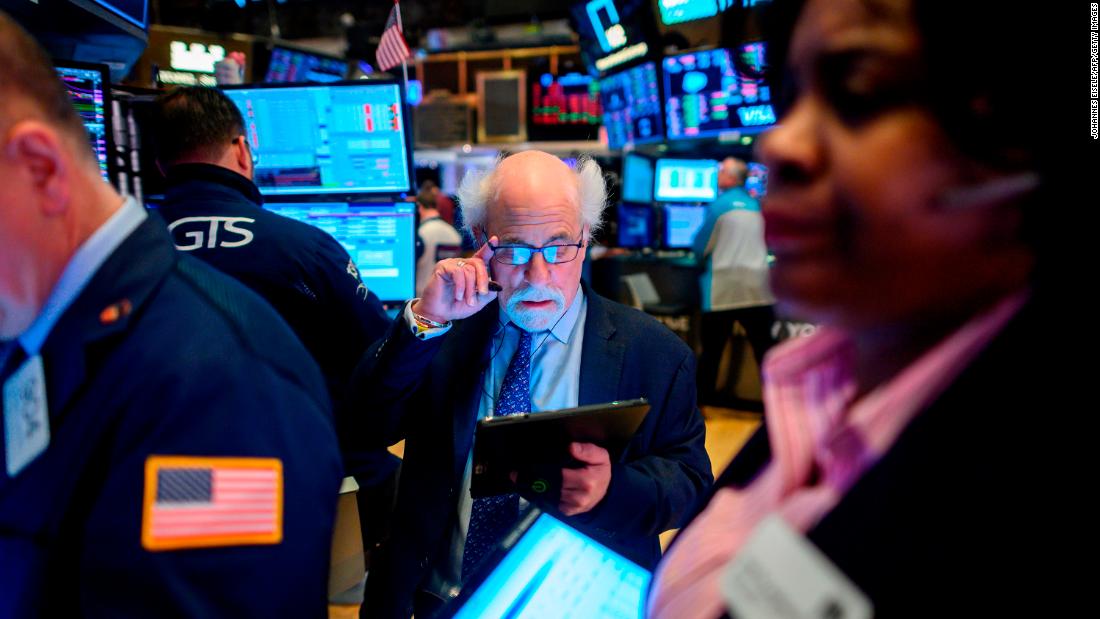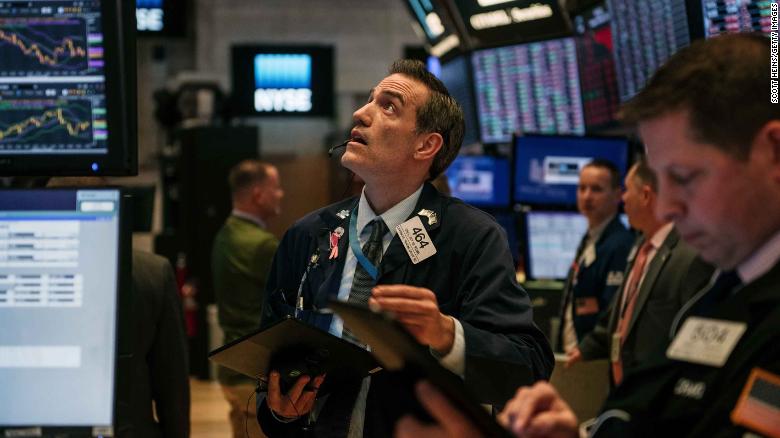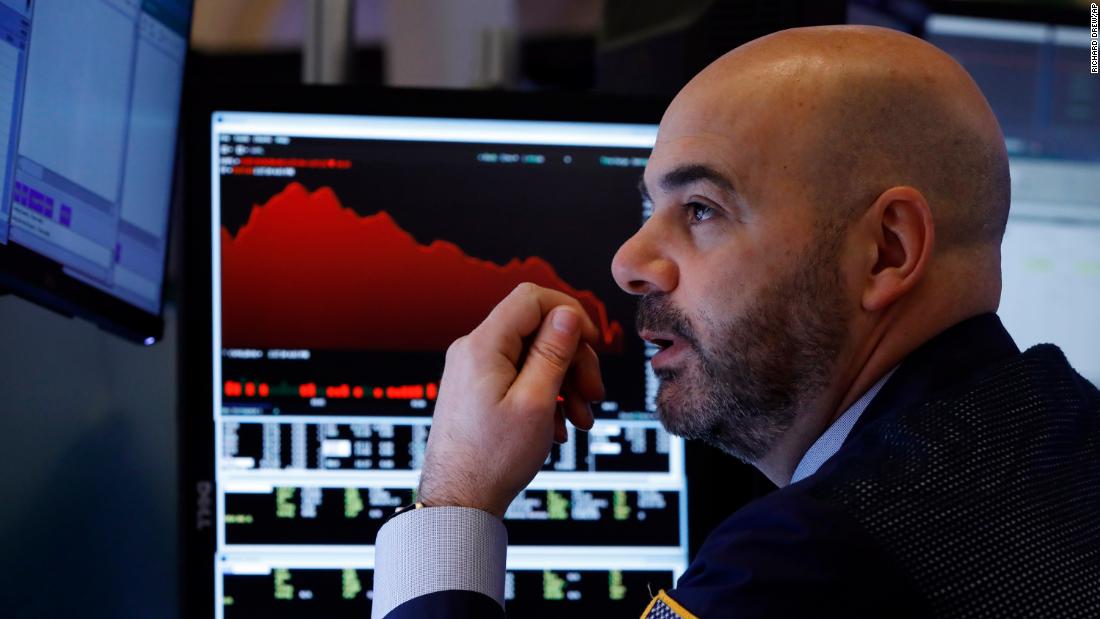Mr.LV
OG
Stocks fall into correction, head for worst week since financial crisis
By Anneken Tappe, CNN Business

 www.cnn.com
www.cnn.com
Updated 11:29 AM ET, Thu February 27, 2020


New York (CNN Business)US stocks fell into correction territory on Thursday as a weeklong selloff continued because of the coronavirus outbreak. All three major US indexes are now on track for their worst week since the financial crisis.
The Dow fell as many as 960 points Thursday before coming back a bit. The index was down 530 points, or 2% lower, by late morning. The S&P 500 also dropped 1.9%. The Nasdaq, which was the only major stock index to end Wednesday in the green, fell 2.1%.
Stocks have been selling off around the world all week as investors fret about the spread of the virus.
The Dow (INDU), Nasdaq Composite (COMP)and S&P 500 (SPX) all fell more than 10% below their most-recent peak, putting them in correction. In the United Kingdom, the FTSE 100(UKX) also fell into correction territory Thursday. This is the market's first correction since December 2018.
Stocks are still some ways away from a bear market, which is defined as 20% or more below the most recent peak.
All three indexes are on track for their worst weekly percentage drop since the 2007-2009 financial crisis. For the Dow and the S&P 500, this week is pacing to be the worst performance since October 2008. The Nasdaq hasn't dropped this much in a week since November 2008.
Worries about the coronavirus outbreak mounted this week, with the US Centers for Disease Control and Prevention saying it expects cases in the United States to rise. The virus has now infected more than 82,000 people worldwide, with the vast majority of cases in China.
Corporations continue to warn that they won't meet their first quarter earnings targets. Microsoft (MSFT) announced that late Wednesday. Goldman Sachs (GS) said in a report Thursday that it now thinks US companies will generate zero earnings in 2020.
"What's even more disconcerting is that the news headlines haven't been all that bad yet," said Paul Hickey of Bespoke Investment Group. "Right now, it's the fear of what could happen that's driving the markets rather than what is actually happening."
Indeed, the US economy is thought to be relatively more resilient against the effects of the virus as it is not as reliant on trade as its peers. The second reading of fourth quarter GDP left growth unchanged at 2.1%.
By Anneken Tappe, CNN Business

Dow falls 1,191 points -- the most in history
US stocks again sold off sharply on Thursday as worries about coronavirus mounted. The S&P 500 posted its worst day since August 18, 2011, and the three main indexes fell into correction territory. Stocks are on track for their worst week since the financial crisis.
Updated 11:29 AM ET, Thu February 27, 2020


New York (CNN Business)US stocks fell into correction territory on Thursday as a weeklong selloff continued because of the coronavirus outbreak. All three major US indexes are now on track for their worst week since the financial crisis.
The Dow fell as many as 960 points Thursday before coming back a bit. The index was down 530 points, or 2% lower, by late morning. The S&P 500 also dropped 1.9%. The Nasdaq, which was the only major stock index to end Wednesday in the green, fell 2.1%.
Stocks have been selling off around the world all week as investors fret about the spread of the virus.
The Dow (INDU), Nasdaq Composite (COMP)and S&P 500 (SPX) all fell more than 10% below their most-recent peak, putting them in correction. In the United Kingdom, the FTSE 100(UKX) also fell into correction territory Thursday. This is the market's first correction since December 2018.
Stocks are still some ways away from a bear market, which is defined as 20% or more below the most recent peak.
All three indexes are on track for their worst weekly percentage drop since the 2007-2009 financial crisis. For the Dow and the S&P 500, this week is pacing to be the worst performance since October 2008. The Nasdaq hasn't dropped this much in a week since November 2008.
Worries about the coronavirus outbreak mounted this week, with the US Centers for Disease Control and Prevention saying it expects cases in the United States to rise. The virus has now infected more than 82,000 people worldwide, with the vast majority of cases in China.
Corporations continue to warn that they won't meet their first quarter earnings targets. Microsoft (MSFT) announced that late Wednesday. Goldman Sachs (GS) said in a report Thursday that it now thinks US companies will generate zero earnings in 2020.
"What's even more disconcerting is that the news headlines haven't been all that bad yet," said Paul Hickey of Bespoke Investment Group. "Right now, it's the fear of what could happen that's driving the markets rather than what is actually happening."
Indeed, the US economy is thought to be relatively more resilient against the effects of the virus as it is not as reliant on trade as its peers. The second reading of fourth quarter GDP left growth unchanged at 2.1%.









